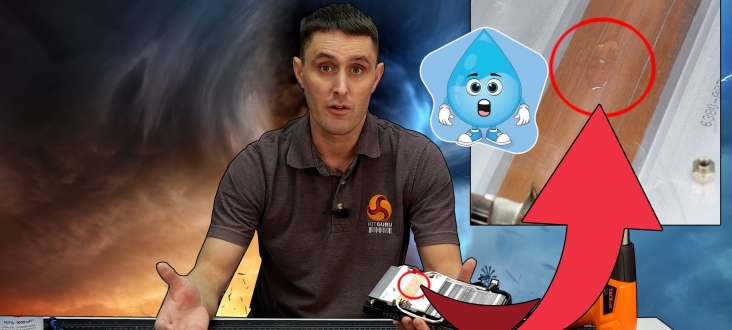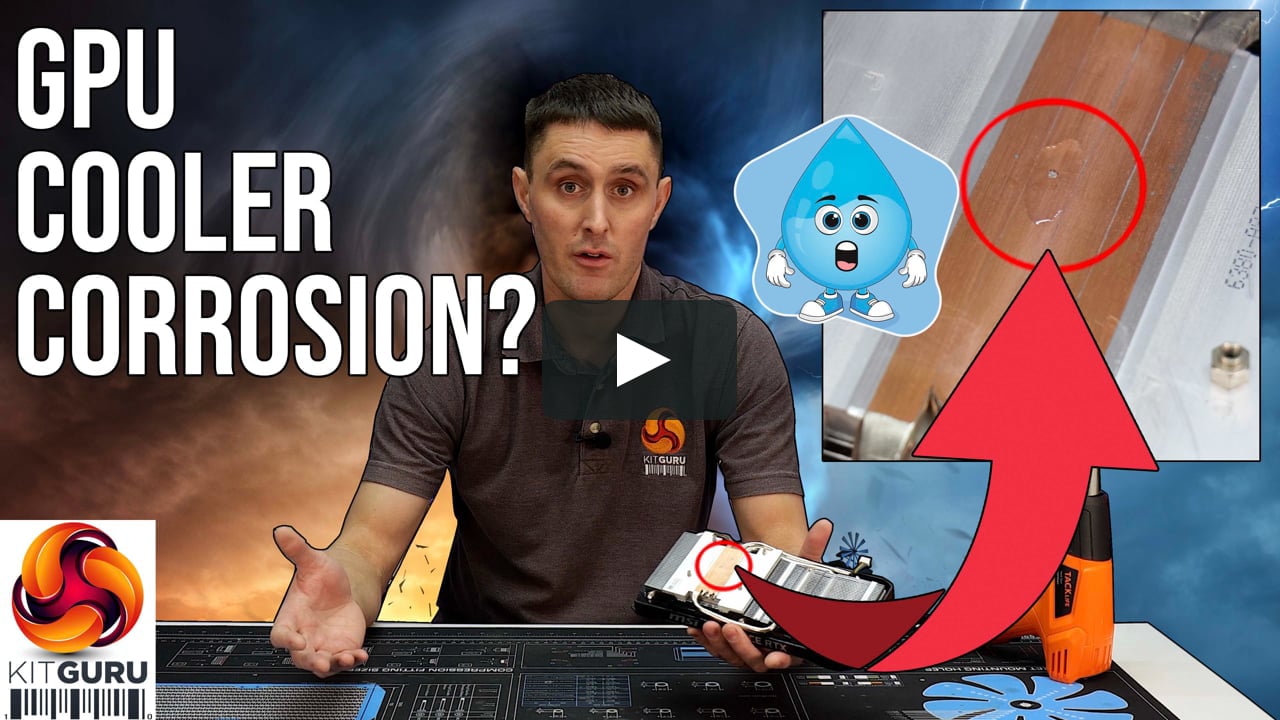- Joined
- May 28, 2019
- Messages
- 10,505
- Reaction score
- 7,394
Hi, all,
Putting this here for now. Not quite enough meat to be a story for us yet but, nonetheless, an interesting piece. Evidently, someone has an MSI Ventus 2080 that was spiking in temps(upwards of 85c!) and when it was torn apart they found a heat pipe that had corroded and was leaking liquid onto the GPU itself. They've contact MSI who has said it is not aware of such a situation and is now looking into it.

 www.kitguru.net
www.kitguru.net

 vimeo.com
vimeo.com
Putting this here for now. Not quite enough meat to be a story for us yet but, nonetheless, an interesting piece. Evidently, someone has an MSI Ventus 2080 that was spiking in temps(upwards of 85c!) and when it was torn apart they found a heat pipe that had corroded and was leaking liquid onto the GPU itself. They've contact MSI who has said it is not aware of such a situation and is now looking into it.

This GPU has sprung a leak! - KitGuru
Today’s video is a quick one from me, reaching out to the community for your opinion and thoughts on
 www.kitguru.net
www.kitguru.net
This GPU has sprung a leak!
Today we have something unusual to cover, and it all started with one of our friends brought James a card to look at. The MSI RTX 2080 Ventus OC - we found out the…
